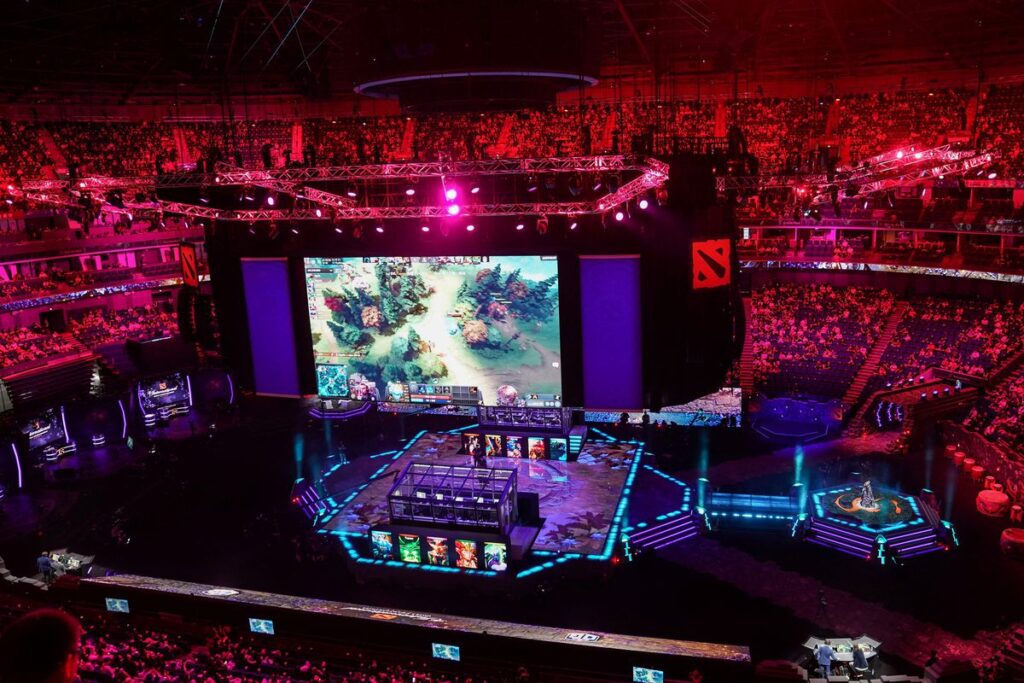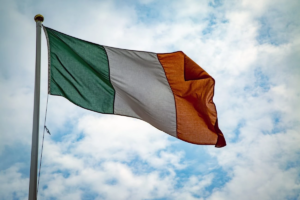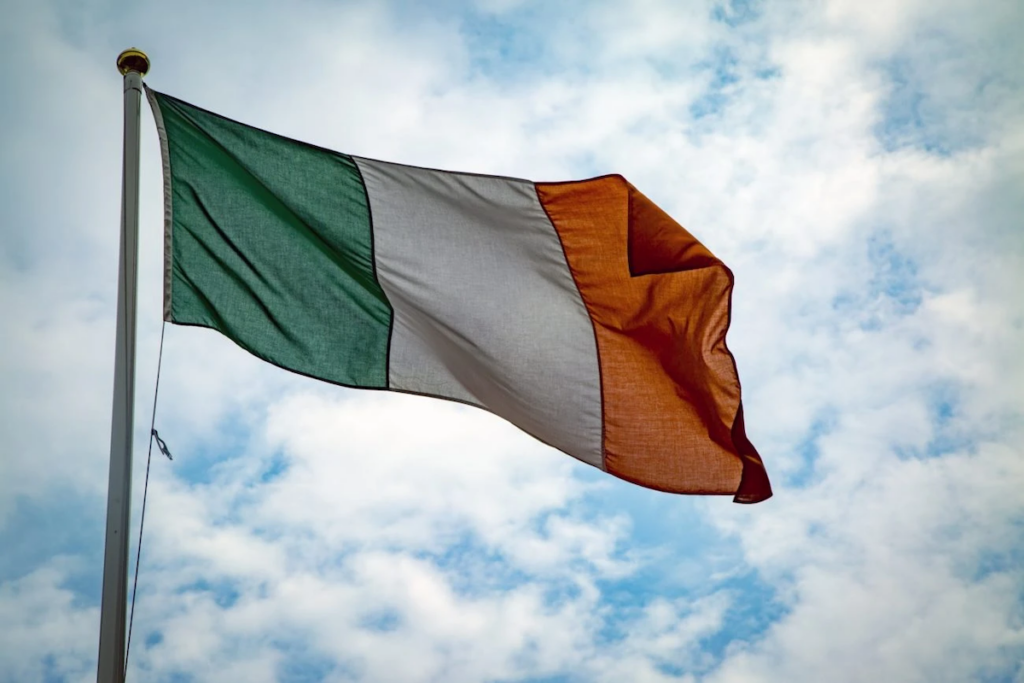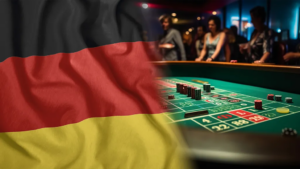Latin America’s Esports Betting Market Explodes 200% Following Regulatory Frameworks
Gambling involves financial risk and may not be suitable for all individuals. Gambling industry experts create our content for informational purposes only. We may receive commissions from affiliate links at no cost to you, but our reviews remain independent and unbiased. We're committed to responsible gambling practices and transparent recommendations. About Us

Latin America’s esports betting sector has catapulted to unprecedented heights, recording a staggering 200% growth since the implementation of comprehensive regulatory frameworks across Brazil, Mexico, and Argentina.
This remarkable expansion coincides with Brazil’s January 2025 launch of regulated sports wagering, which explicitly incorporated esports provisions following the country’s landmark legalization of sports betting in late 2023.
Market analysts project that Brazil’s regulated sports betting market alone will generate $6.75 billion annually by 2027, with esports wagering claiming an increasingly significant share. Meanwhile, Mexico’s sports betting handle reached $1.24 billion in early 2025, with esports already accounting for 15% of total bets placed – a figure that continues to climb.
Key Takeaways
- Explosive Growth: Latin America’s esports betting market has tripled in size (200% growth) following regulatory clarity in Brazil, Mexico, and Argentina.
- Revenue Transformation: The sector now contributes $1.2 billion to Latin America’s iGaming industry, up from $400 million pre-regulation.
- Brazilian Leadership: Public consultations on esports regulations are shaping best practices for age verification, match integrity, and responsible gambling.
- Celebrity Impact: Neymar Jr.’s appointment as President of FURIA’s Kings League Brazil team has dramatically accelerated mainstream adoption.
- Future Trajectory: Brazil is projected to reach 33 million esports users by 2028, creating substantial additional betting volume.
- Investment Surge: Venture capital funding for Latin American esports startups has doubled to $150 million annually.
Regulatory Framework Driving Sustainable Growth
The catalyst for this market transformation has been the implementation of clear, comprehensive regulatory frameworks that legitimize esports betting while establishing consumer protections and operational standards. Brazil’s approach, in particular, has become a model for emerging markets globally.
In February 2025, Brazil launched a public consultation on esports regulations led by Giovanni Rocco, National Secretary of Sports Betting. This initiative aims to align the country’s regulatory framework with industry best practices while addressing specific concerns related to the esports ecosystem.
“Regulation ensures transparency and protects players, creating a sustainable ecosystem for esports betting,” explained Rocco. “Our goal is to establish a framework that supports innovation while maintaining the highest standards of consumer protection and competitive integrity.”
The consultation focuses on several critical areas, including:
Age Verification and Player Protection
Given the younger demographic profile of esports enthusiasts compared to traditional sports fans, Brazilian regulators have prioritized robust age verification mechanisms. Licensed operators must implement multi-layered verification processes, including document validation and biometric checks for accounts showing high-risk patterns.
Carlos Fonseca, CEO of Brazilian industry association Instituto Brasileiro de Jogo Responsável (IBJR), emphasized the importance of these measures: “The esports audience skews younger than traditional sports, creating additional responsibility for operators. Our verification standards exceed those in many European markets specifically to address this challenge.”
Match Integrity Systems
Recognizing the unique integrity challenges in esports competitions, Brazil’s regulatory framework mandates sophisticated monitoring systems for all licensed operators. These systems track betting patterns and flag suspicious activity in real-time, with mandatory reporting to both regulators and tournament organizers.
The framework also establishes clear separation between betting operators and tournament organizers, prohibiting direct ownership relationships that could create conflicts of interest. This approach draws on lessons from European markets where integrity concerns have occasionally surfaced in smaller, less-regulated tournaments.
Responsible Gambling Tools
Brazil’s framework requires operators to implement comprehensive responsible gambling tools specifically designed for esports bettors. These include mandatory deposit limits, reality checks during betting sessions, and prominently displayed probability information for complex betting markets.
Operators must also contribute to a dedicated research fund exploring gambling behavior among esports enthusiasts. The findings directly inform regulatory refinements. Responsible gambling advocates have praised this evidence-based approach as a model for emerging betting markets.
Cultural Shifts Amplifying Market Growth
While regulatory clarity has established the foundation for market growth, cultural shifts have dramatically accelerated mainstream adoption of esports betting across Latin America.
The appointment of football superstar Neymar Jr. as President of FURIA’s Kings League Brazil team in late 2024 signaled a watershed moment for esports credibility in the region. Neymar’s involvement bridged the gap between traditional sports and esports, introducing millions of his followers to competitive gaming competitions.
“Neymar’s involvement legitimized esports in the eyes of mainstream Brazilian sports fans,” noted Julia Martins, Esports Research Director at Newzoo Brazil. “We saw immediate increases in viewership across major tournaments, with corresponding growth in betting activity. His influence effectively compressed what might have been five years of organic growth into a single quarter.”
This celebrity endorsement effect coincides with broader youth demographic trends that favor esports growth. Brazil’s digital-native population continues to expand, with projections indicating the country will reach 33 million esports users by 2028, up from 25 million in 2023.
Market Impact: Operators, Investments, and Revenue
The regulatory clarity and cultural momentum have transformed Latin America’s esports betting landscape across multiple dimensions:
Revenue Explosion
The sector now contributes $1.2 billion to Latin America’s iGaming industry, tripling from $400 million before comprehensive regulation. Brazil represents the largest share of this growth, accounting for approximately 60% of the regional market, followed by Mexico (20%) and Argentina (12%).
“The revenue growth has exceeded even our most optimistic projections,” commented Fernanda Costa, Latin America Director at H2 Gambling Capital. “What’s particularly notable is the high conversion rate among esports viewers to bettors compared to traditional sports, driving exceptional customer acquisition efficiency for operators.”
Operator Expansion and Specialization
Major regional platforms like EstrelaBet and Betano have rapidly expanded their esports offerings, creating dedicated sections featuring specialized markets for popular titles including Counter-Strike 2, Free Fire, and League of Legends.
EstrelaBet, which sponsored four major Brazilian esports organizations in 2024, has reported that esports betting now accounts for 22% of its total betting handle – up from just 7% in 2023. The operator has responded by developing proprietary trading models specifically calibrated for esports markets, enhancing both margin optimization and customer experience.
International operators have also accelerated their Latin American esports initiatives, with Rivalry and Betway both establishing regional headquarters in São Paulo focused primarily on esports markets. These specialized operators bring technical expertise from established markets while adapting their offerings to regional preferences.
Investment Surge
Venture capital funding for Latin American esports startups doubled to $150 million in 2024, with significant investments flowing into content creation, tournament organization, and technological infrastructure. This capital influx has created a virtuous cycle, enhancing the quality and visibility of regional competitions and thereby expanding the potential betting market.
Notable investments include Loud Ventures’ $30 million fund dedicated to Brazilian esports development and G4 Capital’s $25 million stake in Mexican tournament organizer Liga Mx Esports. These investments directly enhance the competitive ecosystem that underpins betting markets, creating more engaging events that attract both viewers and bettors.
Regional Variations and Market Dynamics
While the overall regional trend shows extraordinary growth, important variations exist across Latin American markets:
Brazil: The Regional Powerhouse
Brazil has emerged as the unquestioned leader in Latin American esports betting, benefiting from its large population, high digital penetration, and comprehensive regulatory framework. The country’s betting volume is particularly strong in mobile esports titles like Free Fire, reflecting the predominance of smartphone gaming in the Brazilian market.
“Brazil represents the perfect convergence of factors for esports betting growth,” explained Ricardo Bianco, Gaming Analyst at BTG Pactual. “You have a digitally engaged population, a strong existing esports culture, and now regulatory clarity – all combining to create explosive growth.”
The country’s betting demographics skew younger than traditional sports markets, with 68% of esports bettors falling between 21-34 years old. This demographic profile suggests sustained long-term growth potential as these customers establish deeper betting habits.
Mexico: Mobile-First Innovation
Mexico’s esports betting market reflects the country’s mobile-first digital ecosystem, with approximately 80% of all esports wagers placed via smartphone applications. Local operators have responded with highly optimized mobile experiences that integrate streaming capabilities alongside betting functions.
Mexican regulators have adopted a more hands-off approach than their Brazilian counterparts, creating space for product innovation but potentially raising consumer protection concerns. Industry self-regulation has partially filled this gap, with the Mexican Gaming Association establishing voluntary standards for esports betting integrity.
Argentina: High Average Betting Values
While Argentina represents a smaller overall market than Brazil or Mexico, the country boasts the highest average bet values across Latin American esports markets. This reflects both the country’s stronger traditional sports betting culture and the higher disposable income of its esports enthusiasts.
Argentine operators have focused on premium betting experiences, emphasizing in-play betting options and comprehensive statistical resources. This approach has yielded lower customer acquisition but higher lifetime values, creating a distinct market dynamic from neighboring countries.
Challenges and Future Outlook
Despite the remarkable growth trajectory, several challenges could impact the sustainability of Latin America’s esports betting boom:
Integrity Concerns
As betting volumes increase, so do incentives for match-fixing and other integrity violations. While regulatory frameworks have established monitoring systems, the relative youth of many professional esports players creates vulnerability to manipulation attempts.
To address this challenge, Brazil’s national esports federation has partnered with the International Betting Integrity Association (IBIA) to develop specialized educational programs for players, coaches, and tournament officials. These programs emphasize both ethical considerations and the practical consequences of integrity violations.
Payment Processing Friction
Payment processing remains a significant friction point, particularly in markets with lower banking penetration. While cryptocurrency options have gained traction among technically sophisticated bettors, they represent just 8% of total transaction volume across the region.
Regulatory developments are gradually addressing these challenges, with Brazil’s Open Finance initiative expected to significantly reduce payment friction by late 2025. Meanwhile, operators are investing in alternative payment networks, including direct carrier billing and digital wallet integrations.
Regulatory Divergence
The lack of regulatory harmonization across Latin American jurisdictions creates compliance challenges for operators serving multiple markets. Each country has established distinct requirements for licensing, responsible gambling measures, and technical standards, increasing operational complexity and compliance costs.
Industry associations are advocating for greater regulatory alignment, particularly regarding technical standards and data protection requirements. Progress has been incremental, though a working group established by regulators from Brazil, Mexico, Colombia, and Argentina suggests movement toward greater coordination.
Future Trajectory
Looking ahead, analysts project continued strong growth for Latin America’s esports betting market, with regional betting handle expected to reach $4.5 billion by 2027. Several factors support this optimistic outlook:
Demographic Tailwinds
Latin America’s youthful population provides a natural growth engine for esports betting, with new cohorts of legal-age bettors continuously entering the market. As current esports enthusiasts mature financially, their betting capacity increases, driving higher average wager values across the ecosystem.
Tournament Ecosystem Development
Major global tournament organizers including ESL and BLAST have announced expanded Latin American operations for 2025-2026, creating more high-profile betting opportunities. Simultaneously, regional tournaments are gaining international recognition, attracting global viewership and associated betting activity.
Mobile Infrastructure Improvements
Ongoing improvements in mobile internet infrastructure, particularly the expansion of 5G networks across major urban centers, are enhancing the in-play betting experience. Lower latency enables more responsive live betting on fast-paced esports competitions, potentially increasing engagement and betting frequency.
“Latin America has only scratched the surface of its esports betting potential,” concluded Giovanni Rocco. “With responsible regulation as our foundation, we’re building a sustainable ecosystem that balances innovation with consumer protection, creating long-term value for all stakeholders.”
As the region’s regulatory frameworks mature and operator sophistication increases, Latin America appears positioned to become a global leader in esports betting – potentially rivaling established Asian markets in betting volume while maintaining higher regulatory standards. The 200% growth observed since regulation may represent not an anomaly but the beginning of a sustained transformation of the regional betting landscape.
References
- Altenar. (2025). “LATAM’s Gambling Boom and What Holds for iGaming Operators.”
- ICE Gaming. (2025). “ICE 2025: Keynote Regulation Revitalisation in Latin America.”
- Esports Insider. (2025). “Brazil Launches Public Consultation on Esports Regulation.”
- Next.io. (2025). “Esports Betting: Where It’s Heading in 2025.”
- etinsights.com/report/online-gambling-betting-market/

















